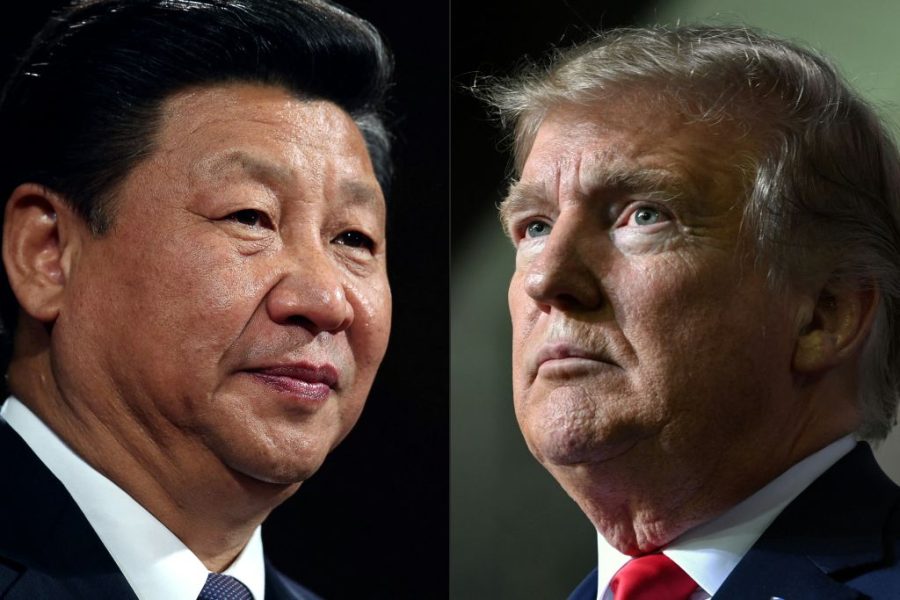Chinese e-commerce is synonymous with one company: Alibaba. With a market cap of $400 billion, the multinational tech giant is responsible for 80 percent of online sales in China. Yet while Alibaba is ridiculously popular in China, it’s not popular in the US. It’s notorious, yes, but it’s not popular. That’s why there’s another e-commerce giant trying to penetrate the American market. As TechCrunch’s Rita Liao recently noted, Pinduoduo, a sort of Alibaba 2.0, “has quickly gained momentum for its first international endeavor in the U.S.”
Headquartered in Shanghai, the financial capital of China, Pinduoduo recently launched Temu, an American online shopping site. The site, we’re told, seeks to challenge Amazon, the king of online shopping. Temu may very well be here to stay, a fact that should worry every US citizen. As we have seen with other wildly popular, Chinese-made apps and services, appearances can be very deceptive.
Marketed as an online shopping site, Temu could just as easily operate as a surveillance system. After all, Alibaba, the original Pinduoduo, appears to be a tool of the Chinese Communist Party (CCP). Is Temu just another Trojan horse designed to spy on unwitting users? It might sound like hyperbolic scaremongering, but consider this: Pinduoduo is, first and foremost, a tech company. All major Chinese tech companies are intimately involved with the CCP. These companies, swimming in a sea of highly personalized data, give the CCP an edge when it comes to acts of espionage. To think the CCP won’t seek to weaponize Temu requires a complete suspension of disbelief.
The US and China are engaged in a cold war. A tech cold war, to be exact, one that revolves around key areas like the production of semiconductors and breakthroughs in quantum computing. This war also involves acts of cyberespionage and intellectual property (IP) theft. As I write this, the US is struggling to prevent China from spying on its citizens and stealing its IP. The idea of allowing a brand new Chinese company — a data harvesting company, I must stress — to enter the US is, at best, risky. At worst, it’s absolutely reckless.
As the author Zac Dorfman noted last year, the embrace between the CCP and major Chinese businesses has never been tighter. For the uninitiated, in China, there’s no such thing as a private citizen, and there’s no such thing as a private company. Any Chinese commercial entity that enters the US must be viewed as nothing less than another wing of the Communist party in Beijing. These businesses, as Dorfman discusses, cooperate with Chinese intelligence services “to achieve the party’s goals.”
What goals, exactly? The accumulation of copious amounts of data. Remember, data is the new oil. Pinduoduo, via Temu, will have access to lots of it. And the CCP has already stolen the personal data of some 260 million American citizens.
As Dorfman writes, the CCP’s “access to, and ability to sift through, troves of pilfered and otherwise obtained data” gives Xi Jinping and his colleagues “vast opportunities to target people in foreign governments, private industries, and other sectors.” In short, Chinese tech companies sift through the data and provide the most useful findings to Chinese intelligence services.
These companies are actually intelligence-gathering companies masquerading as something else entirely. Why should we expect Pinduoduo to be any different than any other Chinese tech company that came before it? If anything, considering the hostility between China and the US, we should expect Pinduoduo to pose even more of a threat. Anusuya Lahiri, an editor at Benzinga, recently discussed how Pinduoduo’s plan to penetrate the American market was directly influenced by TikTok’s success. This should come as little surprise. At least 80 million Americans use TikTok, a Chinese social media app, on a regular basis.
I was one of the first to sound the alarm about TikTok. Criticized, even ridiculed, by some authors, my warnings proved to be accurate. TikTok, like other Chinese-made apps, has been weaponized by the CCP. The same can be said about Huawei, the multinational tech corporation that effectively acted as a spy agency for Beijing. How many times must the US get burned by China before it wakes up?
Pinduoduo, like so many other Chinese-backed sites and apps, is likely a Trojan horse designed to rob even more Americans of precious data. It’s time to wake up and smell the daylight robbery, before it’s too late.

























